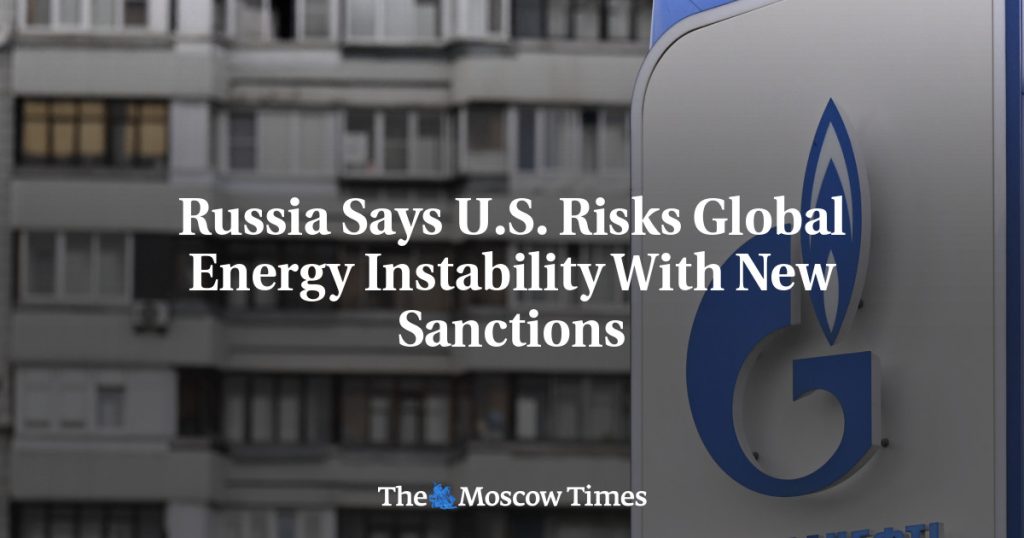Summarize this content to 2000 words in 6 paragraphs
Moscow on Saturday accused the U.S. of being ready to risk global energy instability with new wide-reaching sanctions on Russia’s energy sector.
The U.S. and the U.K. on Friday announced new sanctions against Russia’s energy sector, including oil giant Gazprom Neft, just days before President Joe Biden leaves office.
Moscow’s foreign ministry said in a statement that on the eve of Biden’s “inglorious time in power,” Washington was trying to “cause at least some harm to Russia’s economy even at the cost of destabilizing world markets.”
“Of course, Washington’s hostile actions will not be left without reaction,” it added.
In a reference to the California wildfires, Moscow accused Biden’s administration of leaving behind “scorched earth,” or total destruction, for incoming US President Donald Trump — since he cannot cancel the sanctions without Congress approval.
Kremlin spokesman Dmitry Peskov earlier told reporters that the Biden administration was trying to leave Trump “as heavy a legacy as possible.”
The US Treasury Department said Friday it was designating more than 180 ships as well as Russian oil majors Gazprom Neft and Surgutneftegas, fulfilling “the G7 commitment to reduce Russian revenues from energy.”
Gazprom Neft on Friday slammed the sanctions as “baseless” and “illegitimate,” Russian state news agencies reported.
Biden’s deputy national security advisor for international economics, Daleep Singh, called the sanctions “the most significant” yet on Russia’s energy sector, which he said was “by far the largest source of revenue for [President Vladimir] Putin’s war.”
The Russian ministry on Saturday accused the US of seeking to “hinder as far as possible or even make impossible any bilateral economic ties, including with US business.”
It said Washington was “sacrificing to this the interests… of European allies”, which are “forced to switch over to more expensive and unreliable American supplies.”
It also accused Washington of “ignoring” the views of its own population on rising energy prices once the presidential election was over.


